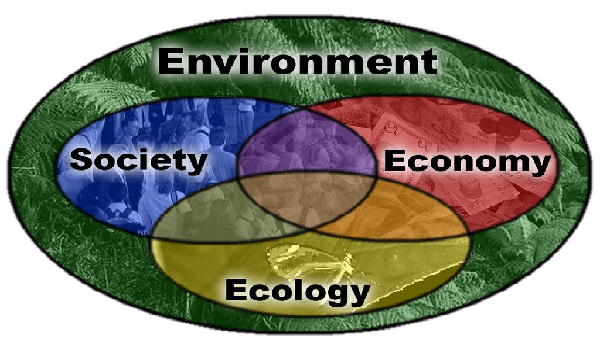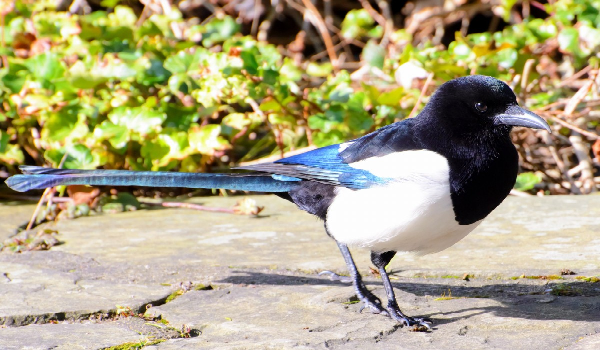This post is in response to one of the activities of fundition. The activity is such that participants are to take one of the online courses on alison.com and then make a post about what they have learned in the course. The original post about the activity can be found here. This is a post on a lesson titled introduction to ecology
What exactly is ecology?
All living organisms live in a particular place, be it in air, water or land. During the course of their lifespan, these organisms interact with the spaces they live. If the definition of biology as the study of living organisms is indeed true (of course, it is !), then the portion of biology that specializes in the study of interaction of living organisms with the physical space they live is referred to as ecology.

Hence, depending on the kind of organism being studied, appellation can be attached as appriopriate. For example, we can have microbial ecology if it involves the study of interaction of microorganisms with their physical environment, plant ecology for the interaction of plants with environment and so on and so forth. It is however pertinent to understand that the physical space that organisms lives (which technically is the environment) is made up of both living and non-living components. The living components are referred to as biotic factors while the non-living components are referred to as abiotic factors respectively.
Generally, organisms tend to interact with other organisms that constitute the biotic components of the environment. These interactions can take different forms; while some are beneficial to the organisms, some could be harmful while a host of others could be neutral. Similarly, organisms interact with non-living components of the environment such as climate, soil etc.
Levels of Ecological studies
When it comes to the study of organisms in relation to their physical environment, there are different levels available for them to be studied. Organisms can be studied singly or in groups. The lowest level of ecological study is when organisms are studied individually in relation to their environment, a process that is generally termed autecology. Beyond this, ecological studies can be carried out at the population level.
a population is a group of organisms of the same species with inherent capacity to interbreed and occupying the same geographical area.
Ecology study can also be carried out at the community or ecosystem level. The study of ecology at community level is otherwise known as synecology
An ecological community is a combination of different population of organisms that keeps interacting with one another in a particular habitat.
An ecosystem is a community of different organisms interacting with one another and the non-living component of the environment.
Of what use is Ecological study?
The study of organisms in relation to their environments is carried out largely to understand the abundance, distribution, adaptation and several other processes behind the existence of organisms in different environment. Detailed understanding of distribution and abundance will help ecological managers to make policies that could lead to sustainable use of naturally available resources in the environment.
Ecological studies would also help scientists to understand biodiversity and the best way to exploit their usefulness. Understanding of biodiversity is quite important for the continuous existence of man. The biological resources the planet has to offer have and would continue to serve important purposes such as food, drugs, industrial materials and so on. Through careful studies, the best way to conserve endangered species of important organisms can be reached.

What are the aims of ecological studies?
Depending on the level of study, the aim of ecological study varies. At individual level, an ecologist might be all out to determine or understand the different characteristics and attributes that enable an individual to be well suited to a particular habitat or environment. These characteristics may be morphological, physiological or even behavioural.
At population level, the focus of ecologists is to estimate the number of organisms in an area as well as the various factors that interacts together to induce a flux in the population size as well as population density. A study of the birth rate, the death rate as well as migration might give an idea of the direction at which the population is growing.
Community ecologists often aims to study and identify the processes that drives interactions within and between populations. Understanding of the interactions would give the ecologist an idea of how the community is structured. Interactions within/among organisms of the same or different populations could be beneficial as well as harmful. These interactions can take different forms including competition for same resources, predation, mutualism, commensalism among many others.
The aim of ecosystem ecology is a combination and extension on the aims of individual, population and community ecology. The study focuses on the interaction of biotic and abiotic component of the environment, energy relationship among organism and its transfer within the communities and cycling of essential nutrients within the environment.
Summary
Ecology is a branch of biology that deals with the study of interaction of living organisms in relation to their environment. The study can be carried out at individual, population, community or ecosystem levels. The main goal is to understand the principles guiding the distribution and abundance of living organisms in the environment.
Thank you all for reading.
Further reading
Convenient Delegation Links:


Oseni Shaid | Ambassador (Nigeria)
Email : oseni.shaid@yahoo.com

Join a community with heart based giving at its core






This is a good article @gentleshaid, You remionded me of my undergraduate biology. Thanks for sharing this
It's good to revisit some of these things. I can totally relate. Thanks for reading through.
This post has been voted on by the steemstem curation team and voting trail.
There is more to SteemSTEM than just writing posts, check here for some more tips on being a community member. You can also join our discord here to get to know the rest of the community!
This is a detailed article on ecology and its related subtopics. I can't think of any additional thing to say here. Thanks
@sciencetech
Thank you for taking the time out to read it.
Hello @gentleshaid
Reading this, I felt I was preparing for WAEC and JAMB😂. This is a complete discourse on ECOLOGY and is affiliated concepts. I felt very refreshing as ecology used to be my favorite chapter back then. Thanks for sharing this well written work.
@eurogee of @euronation and @steemstem communities
Walahi! 😂
Thought I'm the only one who felt this way.
Thank you my bros. It is an honour to have you around my blog each time I make a post.
Since ecology studies organisms in relation to their environment (which includes the process of adaptation) would I be correct to infer that ecology is a subdiscipline of evolutionary science? - Because it also studies the series of adaptation in organism.
Nice piece buddy
I think both ecology and evolutionary science are intertwined. It is kind of difficult to conclude outrightly that one is a sub-discipline of the other. This is just my opinion. Thanks for coming around.
Hello, as a member of @steemdunk you have received a free courtesy boost! Steemdunk is an automated curation platform that is easy to use and built for the community. Join us at https://steemdunk.xyz
Upvote this comment to support the bot and increase your future rewards!
This is a refresher, bringing back old teachings. Reading through the post it just dawned on me that ecology is more than just the study of the interaction of living organism and their environment but is the study of the economy of organism even though they have no money. Great post boss!
You are totally right. Ecology is all-encompassing as a discipline. Thanks for reading.
This is a very nice article. You really touched the topic and dealt with it appropriately.
Thanks boss.
Thanks Emperor
Hello there @gentleshaid,
Thank you for taking part in our Activity,spreading and learning with Fundition. We hope you enjoyed your course and learnt something. And also the ones that are reading it, got some great points from your great content.
Learn more about Fundition by reading our purplepaper
Join a community with heart based giving at its core
Thank you funditians. I enjoyed every bit of the course and learned a lot as well. Thanks for encouraging this